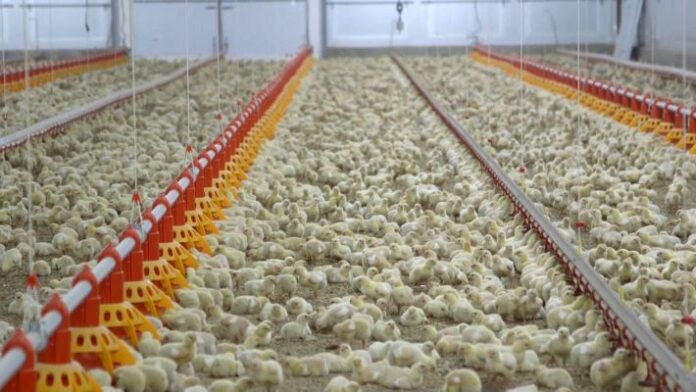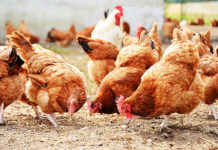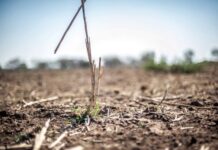World Animal Protection today published research showing how cruel factory farming contributes at least 11% of the global greenhouse gases fuelling climate change.
The international charity’s How Factory Farming Emissions are Worsening Climate Disasters in the Global South report also details how intensive animal agriculture is impacting small-holder farming, which contributes to the livelihoods and food security of 1.7 billion people.
The report finds the Global North’s factory farms are responsible for US$8.65 billion worth of damage across recent disasters in Africa, Asia and South America.
By 2050, the economic costs associated with climate driven disasters globally could exceed US$1 trillion annually as the impacts of climate change intensify with factory farms liable for over US$100 billion of that cost.
A resource-intensive business, factory farming releases a large proportion of greenhouse gases into the atmosphere, worsening heat waves, wildfires, floods and droughts. Swathes of wild habitat are destroyed to plant crops for animal feed, killing wild species and releasing more carbon, and the journey from factory farm to dinner plate pumps around six trillion tons of emissions into the atmosphere.
Billions of caged animals in factory farms are subjected to unimaginable cruelty. To stave off diseases which fester in the cramped conditions, they are dosed with antibiotics, fuelling the spike in antimicrobial resistance. Pigs, cattle and chickens are painfully mutilated and are bred to grow fast for profit, suffering debilitating injuries in the process.
These unethical and unsustainable practices are perpetuated by the world’s biggest meat producers who are reaping record profits at the expense of vulnerable communities, animals and the environment. The world’s biggest meat producer, Brazil-based JBS – which is widely condemned for accelerating deforestation – recently announced a record $72.6 billion in global net revenue.
Factory farming is set to surge in the Africa, driven by an expected 30% rise in meat demand. This will not only increase factory farming emissions and contribute to worsening climate related disasters – but also replace the sustainable, agroecological pastoralists and their diversified independent farming systems. African countries will have to spend US$53 billion annually by 2030 to adapt to the climate crisis, the report details.
To address their significant culpability in climate change, World Animal Protection is calling for governments at COP28 to impose a 10-year moratorium on new factory farms and halt this flawed food system’s rapid global expansion. It also calls for finance for adaptation and loss and damage to be directed towards smallholder farmers in the developing world.
Tennyson Williams, Director for Africa at World Animal Protection, said: “As our report details, animal cruelty and climate change are interlinked. Until we get rid of animal cruelty in farming, climate change will worsen. Factory farming poses a core obstacle in achieving the targets laid out in the Paris Climate Agreement and casts a dark shadow over the prospect of a climate-safe future.
“Factory farming not only causes suffering to billions of animals and the destruction of wild habitats. It is undermining food security for communities around the world. Land that could be used to grow crops for humans or to protect wildlife, is instead used to plant crops to feed factory farmed animals. It’s simply a wasteful, destructive food chain.”
Dr Victor Yamo, World Animal Protection’s Humane and Sustainable Agriculture Campaigns Manager, said: “World leaders must act meaningfully at COP28. The factory farming industry must be held accountable by governments and finance must be directed to the Global South communities on the front line of climate change.
“COP28 must take action to shore up a humane and sustainable food supply, with governments withdrawing subsidies for industrial meat and dairy and redirecting them to plant-based foods in ways that support small scale farmers. Animals remaining on factory farms should be spared the worst forms of suffering.”








